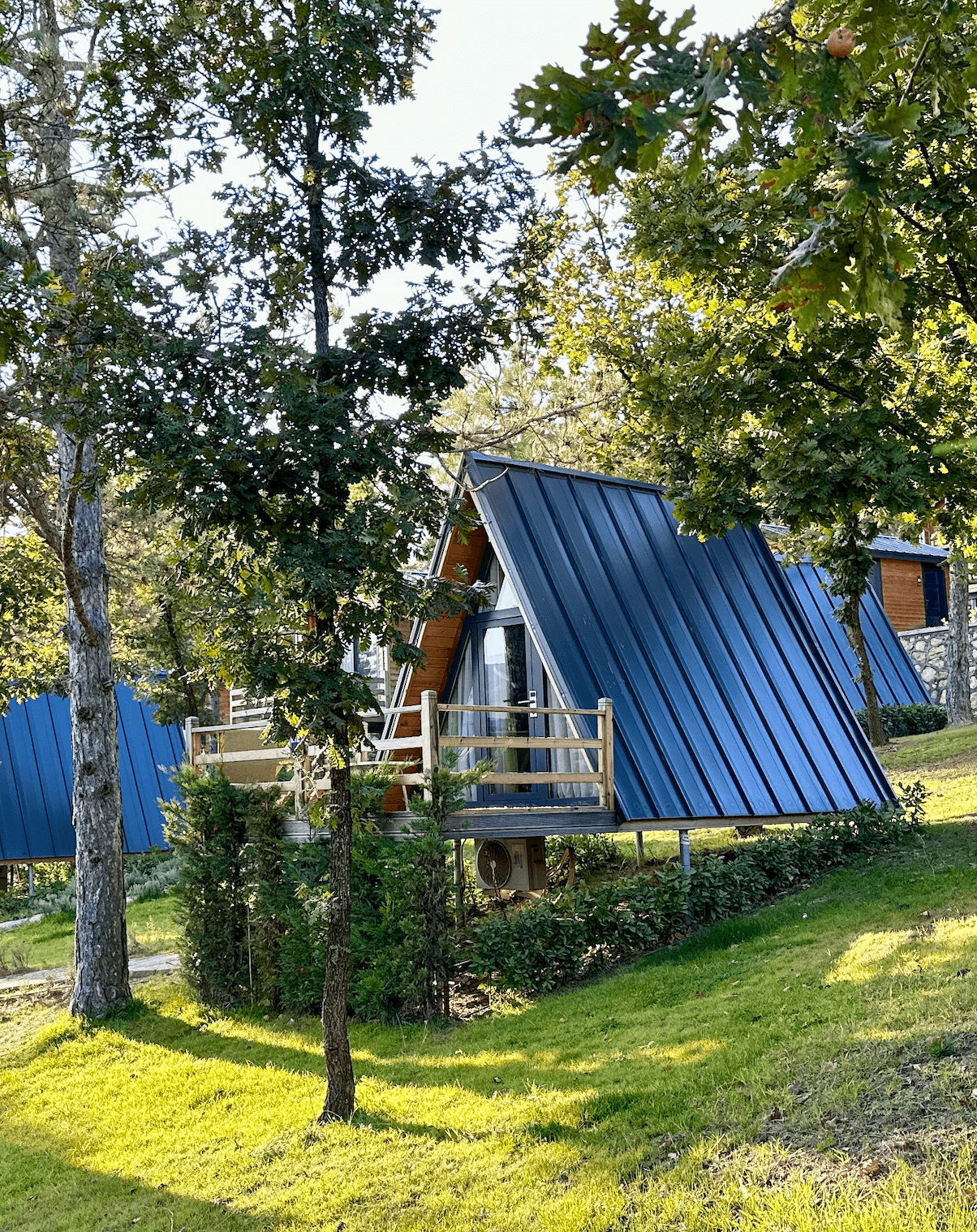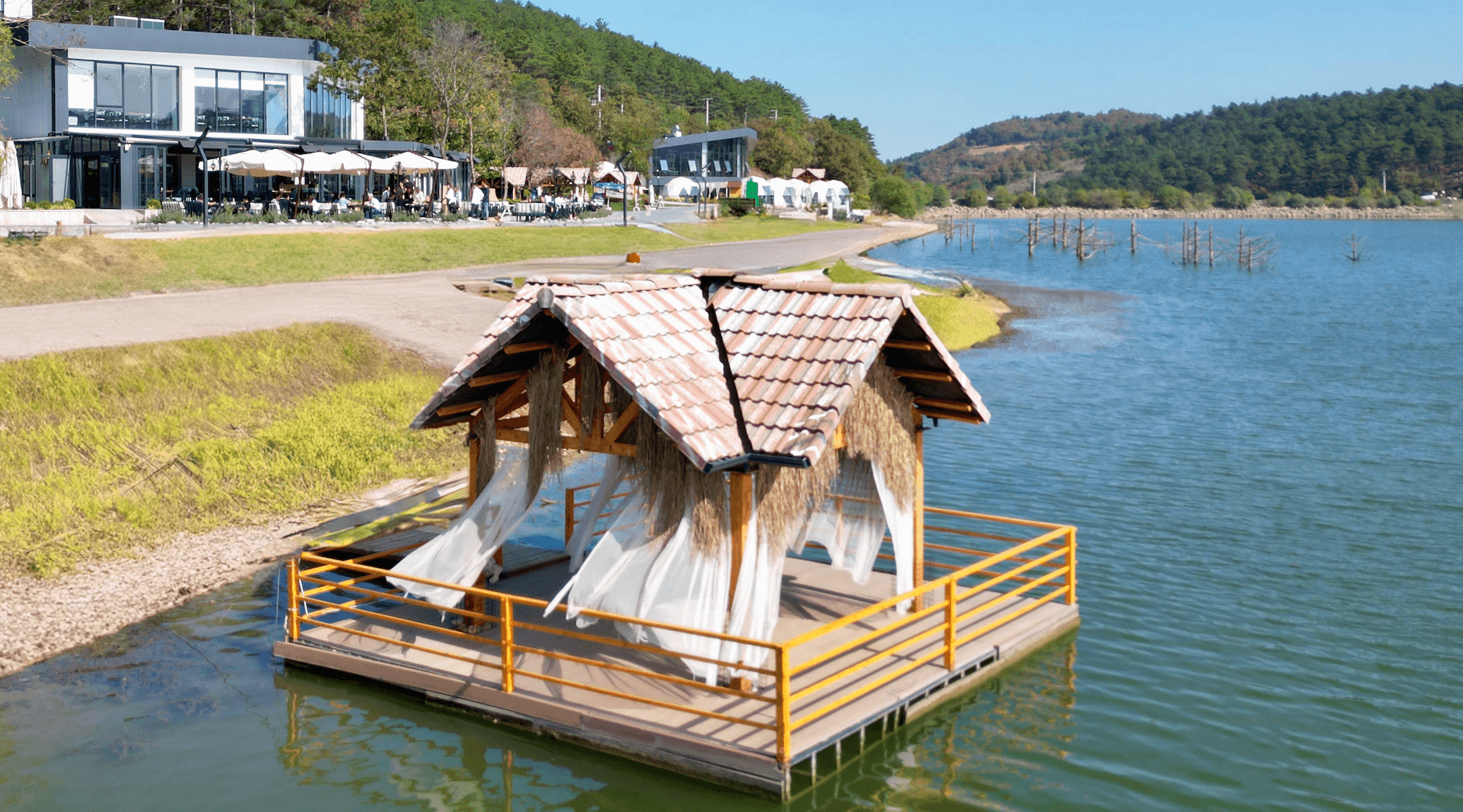
Nefes Dağyenice
Sustainable Tourism
It fulfills all its responsibilities for sustainable nature in many activities and areas that include Nefes Dağyenice and continues in this regard.
It aims to support the protection of natural areas, the habitats of all living things, species and endemism (local species) and to minimize the damage to them, and to increase their awareness by observing the protection-use balance during and after these practices.
We protect our future with the Forest School and activities that tell children and young people about the importance of loving and protecting nature, and we take the first step towards sustainable tourism together with our children. We offer them the opportunity to experience what they have learned in a natural environment. In our Event Building, we offer young people and business people the opportunity to share their knowledge and experiences. With our project of hosting Erasmus projects, we advocate equality in education regardless of religion, language, race and gender, and bring together young people from all over the world at Nefes with various events.
Tourism is a process in which cultural integrity, ecological diversity, biological diversity and life-sustaining systems are maintained in the transit of people or in a way that preserves the existing environment without deteriorating or altering it, and at the same time, in a way that people multiply economically, socially and aesthetically in all visited places, and that future generations can enjoy the same. It is defined as an approach in which they are managed in a way that they can meet their needs.
With sustainable tourism, it is aimed to contribute to the local economy, the protection of natural and cultural heritage, and to increase the quality of life of local people and visitors by minimizing the negative effects of tourism on society and the environment. The concept of sustainable tourism does not essentially define a type of tourism, but rather the principles that should be adopted when carrying out activities to develop different types of tourism.
Your
BornYour life


1) Economic Continuity
To ensure the local applicability of policies designed to ensure that tourism routes and initiatives can sustain their success and benefit in the long term, and to compete competitively at national and international levels and thematically.
2) Local Development
To increase the contribution of tourism to the host destination by supporting measures that increase the rate of visitors staying overnight, meeting with local producers and service providers, and spending locally.
3) Employment Quality
To support professional specialization, without making payments based on race, gender or disability, and to evaluate and transform tourism and local employment by improving wages and services.
4) Social Participation and Gender Equality
To strive to distribute the economic and social benefits obtained from tourism activities widely and fairly, and to improve the opportunities, income and services provided to the economically and socially disadvantaged.
5) Visitor Satisfaction
To offer visitors a safe, satisfying, sustainable and innovative experience, without discrimination of race, gender, disability, age or any other discrimination, and to support the concept of "responsible tourists".
6) Local Control
To ensure that local governments are in consultation with other stakeholders of tourism in the planning, management and implementation stages, to strengthen the local people/communities and civil society in the development of tourism in the region and to include them in the processes.
7) Social Welfare
To preserve and improve the quality of life of local people by ensuring their access to social structures and resources, facilities and life support systems without causing social degradation and exploitation.
8) Cultural diversity
To respect the historical heritage, original culture, traditions and distinctive characteristics of the local people and to increase their value.
9) Physical Integrity
To maintain and improve the quality of urban and rural areas and to prevent physical and visual deterioration of the environment.
10) Biodiversity
11) Efficient Use of Resources
In the development and operation of tourism facilities and development, limited and non-renewable growth is minimized, in the case of natural, cultural and historical values, increasing local ownership and national and international awareness, increasing awareness of these practices and subsequently by considering the balance of protection-use.
Our primary goal is to open nature to tourism, while minimizing air, water and soil pollution and waste production caused by tourism businesses and visitors, to inform local people, business employees and guests about environmental impact, and to popularize concepts such as "responsible business" and "responsible tourist".
